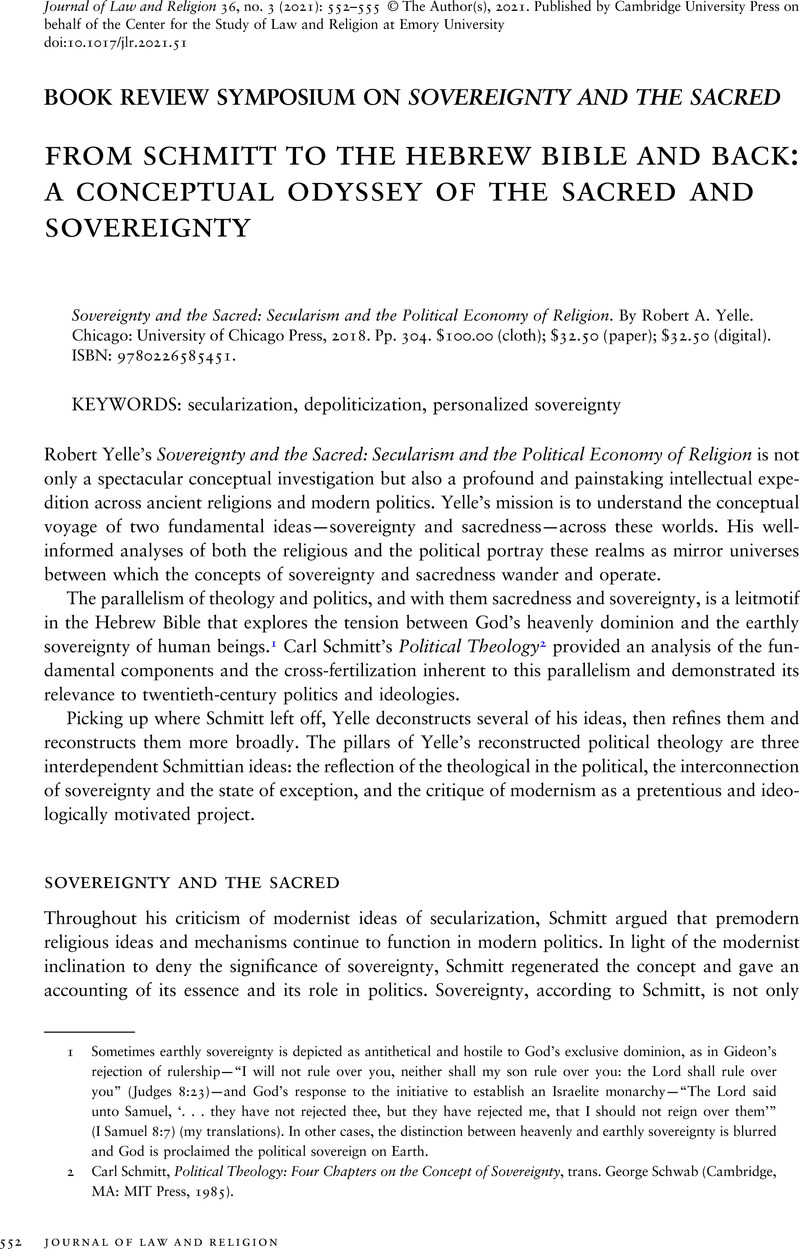No CrossRef data available.
Published online by Cambridge University Press: 03 November 2021

1 Sometimes earthly sovereignty is depicted as antithetical and hostile to God's exclusive dominion, as in Gideon's rejection of rulership—“I will not rule over you, neither shall my son rule over you: the Lord shall rule over you” (Judges 8:23)—and God's response to the initiative to establish an Israelite monarchy—“The Lord said unto Samuel, ‘. . . they have not rejected thee, but they have rejected me, that I should not reign over them’” (I Samuel 8:7) (my translations). In other cases, the distinction between heavenly and earthly sovereignty is blurred and God is proclaimed the political sovereign on Earth.
2 Schmitt, Carl, Political Theology: Four Chapters on the Concept of Sovereignty, trans. Schwab, George (Cambridge, MA: MIT Press, 1985)Google Scholar.
3 Agamben, Giorgio, State of Exception, trans. Attell, Kevin (Chicago: University of Chicago Press, 2005)Google Scholar.
4 Schmitt, Political Theology, 36. “The exception in jurisprudence is analogous to the miracle in theology. Only by being aware of this analogy can we appreciate the manner in which the philosophical ideas of the state developed in the last centuries.” Schmitt, 36.
5 The universalist and rationalist Kantian conceptualization of human dignity as a quality of sovereignty is thus understood as an alternative to the Judeo-Christian view of human dignity as stemming from the biblical idea of imago dei.
6 “In the kingdom of ends everything has either a PRICE, or a DIGNITY. What has a price can be replaced with something else, as its equivalent; whereas what is elevated above any price, and hence allows of no equivalent, has a dignity.” Kant, Immanuel, Groundwork of the Metaphysics of Morals: A German-English Edition, ed. trans., and Timmermann, Jens and Gregor, Mary (Cambridge: Cambridge University Press, 2011), 96–97CrossRefGoogle Scholar.
7 In fact, cryptocurrencies well exemplify the detachment of money usage from political sovereignty—an advanced phase in which sovereignty is depoliticized and individuals’ independent sovereignty is enhanced.